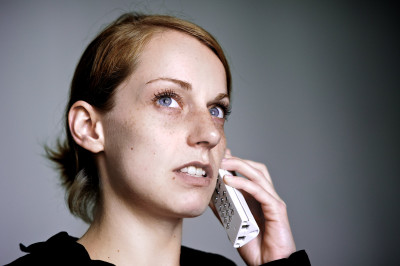Getting COVID-19 Infection in Austria: What Should Expats Do If Symptoms Occur?
Foreigners in Austria who feel flu-like symptoms or who have had or may have had contact with someone infected with the coronavirus may themselves have been infected with the novel virus SARS-CoV-2. What should expatriates, tourists and other foreigners in Austria do if they suspect that they have been infected with the virus themselves?
 What should foreigners in Austria do if they suspect that they have been infected with SARS-CoV-2 themselves? / Picture: © Flickr / Robert Agthe (CC BY 2.0)
What should foreigners in Austria do if they suspect that they have been infected with SARS-CoV-2 themselves? / Picture: © Flickr / Robert Agthe (CC BY 2.0)
If you suspect that you have been infected, please do not go to a doctor or an outpatient clinic
Instead call 1450 - the health hotline - and find out what further steps you should take. This is the only way to avoid further infections in the event of a possible infection.
This number is available around the clock for expatriates, tourists, other foreigners and locals.
In view of the spread in Austria the health hotline 1450 is particularly important as first approach place.
If there is any suspicion of an infection, those affected should under no circumstances go directly to the outpatient clinic, but stay at home, dial 1450 and coordinate the appropriate procedure.
In principle, the 1450 hotline is available in German only. The telephone operator will however assist and support you in English if required.
Many complaints could already be clarified by telephone. For this purpose, the coronavirus hotline of the Austrian Agency for Health and Food Safety (AGES - Agentur für Gesundheit und Ernährungssicherheit) has been set up under the toll-free number 0800 555 621.
Attention: Unfortunately both hotlines provide no designated English-speaking hotline.
Different types of COVID-19 test methods
Covid-19 can be detected directly by virus detection (e.g. PCR) or indirectly via antibodies (which are formed during an infection). For the early diagnosis of an infection, only direct pathogen detection using a quality assured PCR method (WHO Gold Standard) is currently suitable.
PCR tests (polymerase chain reaction) are used to detect a current COVID-19 infection. For PCR tests, samples are taken either deep in the throat or in the nasal cavity.
Antibody tests check the presence of antibodies against a virus in the blood. Since antibodies are only formed in the further course of the infection, the detection of antibodies can be expected on average about 12-14 days after an infection, so that these tests are not suitable for early diagnosis. Antibody tests are an important supplement to PCR tests in order to detect infections that have already occurred.
Special caution is required when using them privately or when purchasing so-called "rapid tests", as they can lead to false-positive and false-negative results and therefore do not provide a clear result. In addition, even positive rapid tests do not provide any information about the person's immunity status (i.e. whether the tested person is protected against a new infection). For the correct interpretation, medical expertise is therefore required, explains the Federal Ministry of Social Affairs, Health, Care and Consumer Protection on its website.
In case of confirmed infection, contacts are checked
If a suspicion is justified, a test for coronavirus infection is performed.
In the event of an actual infection, the patient and all those with whom close contact has been established are isolated either in hospital or in home quarantine.
Such a quarantine period lasts ten days. During this time, a continuous check is made to see whether (still) an infection with SARS-CoV-2 exists.
Further information is also available under the following link: Bundesministerium für Soziales, Gesundheit, Pflege und Konsumentenschutz



